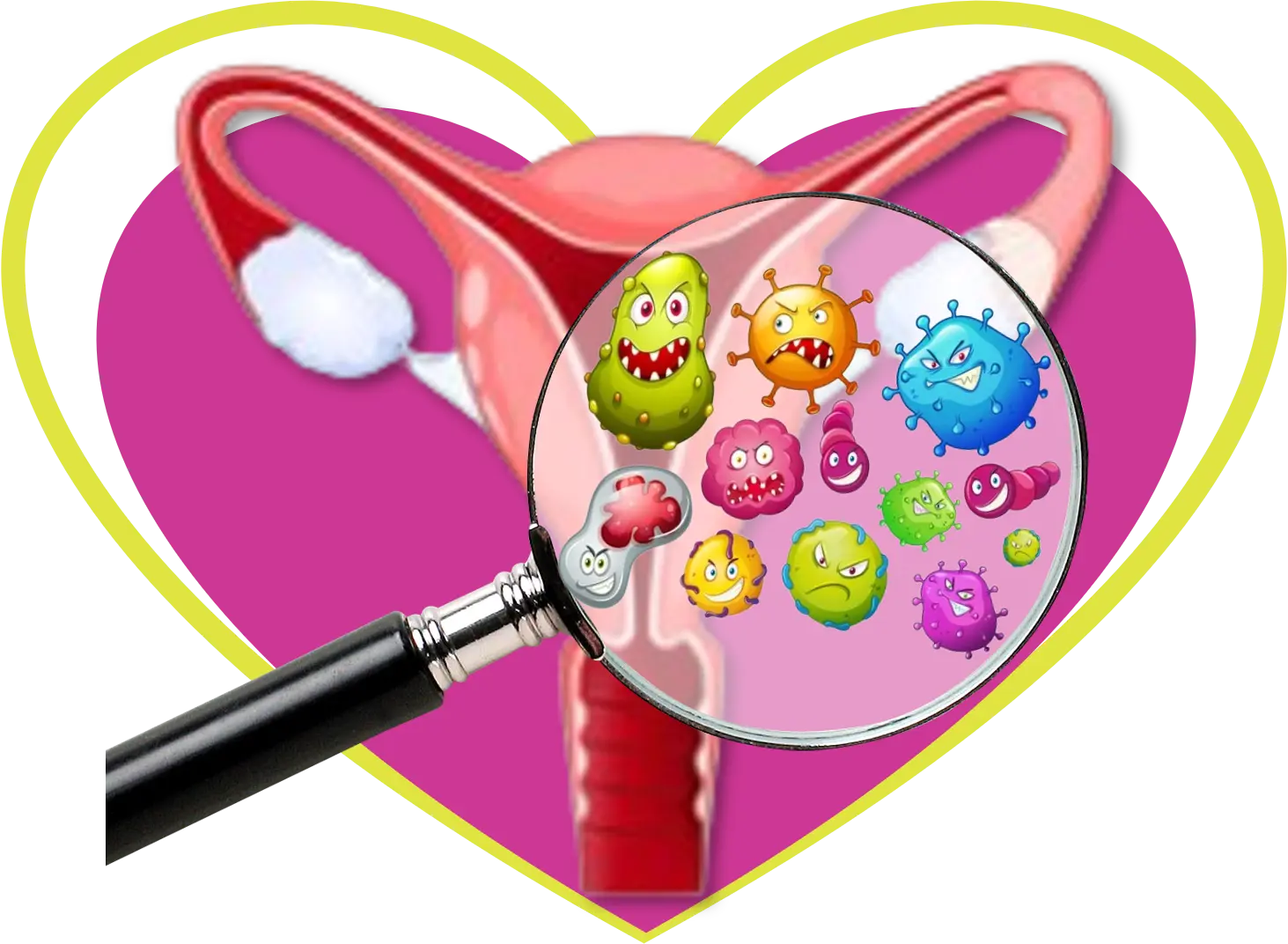Struggling with discomfort? Worried about vaginal infections? You’re not alone. We’re here to help you understand what vaginal infections are and tackle these issues effectively. Our article offers insights into various infections, symptoms to watch for, as well as prevention and treatment tips. Stick till the end for questions submitted by readers just like you!
Key Takeaways
- Vaginal infections can cause discomfort and health risks if untreated.
- Common types include Bacterial Vaginosis, Yeast Infections, and Trichomoniasis.
- Triggers include hormonal changes, antibiotics, and improper hygiene.
- Prevention strategies: hygiene, breathable fabrics, safe sex, and diet.
- Consult healthcare providers for persistent symptoms for accurate diagnosis.
What Are Vaginal Infections?
Vaginal infections encompass a variety of issues that many women encounter at some point. It’s essential to be informed about different types, their symptoms, and prevention techniques. This knowledge can assist you in taking charge of your health effectively.
Common Types of Vaginal Infections
Bacterial Vaginosis (BV): BV occurs when there’s an imbalance in the good and bad bacteria in the vagina. You might notice a thin, gray discharge alongside a noticeable fishy odor, which can be more apparent after sexual activity.
Yeast Infections (Candidiasis): This condition is due to overgrowth of Candida, a type of yeast. Expect to see a thick, white discharge that resembles cottage cheese, and you may feel significant itching, redness, or discomfort.
Trichomoniasis: This infection is caused by the parasite Trichomonas vaginalis. Not everyone will have symptoms, but those who do often experience a yellow-green discharge, discomfort during urination, and possible inflammation.
Health Implications of Vaginal Infections
While the discomfort associated with vaginal infections is inconvenient, the risks can extend further if these conditions are left untreated. Potential outcomes include reproductive health challenges and complications during pregnancy. Additionally, untreated infections can increase vulnerability to sexually transmitted diseases (STDs). Early detection and management are crucial.
Triggers for Vaginal Infections
Several elements can trigger vaginal infections. Hormonal fluctuations, medications like antibiotics, and stress all have the potential to disrupt the vaginal environment. Practices such as douching may alter the vagina’s natural pH, creating an environment conducive to infections. Moreover, some fabrics and hygiene products can irritate and upset sensitive skin.
Key Symptoms to Recognize
Recognizing symptoms early can facilitate timely intervention. Be on alert for unusual discharge—whether it be in color or odor—itchiness, or a burning sensation. Pain during sex or urination might also signal a problem. Don’t hesitate to consult a healthcare specialist if these signs appear.

Strategies for Prevention
To decrease the risk of vaginal infections, consider these practical lifestyle adjustments:
- Practice Good Hygiene: Use gentle, unscented soaps and steer clear of douches to maintain the vagina’s natural acidic environment, which helps fend off harmful bacteria.
- Choose Breathable Underwear: Cotton fabrics allow for better airflow, reducing moisture and bacteria growth.
- Follow a Balanced Diet: Include yogurt with probiotics in your diet to help maintain a healthy bacterial balance.
- Engage in Safe Sexual Practices: Employ protection to minimize risks of infections and sexually transmitted diseases.
Consulting a Healthcare Provider
Persisting symptoms or frequent recurrence would warrant a visit to a healthcare specialist. We offer specialized women’s health services, which include diagnostic testing and customized care plans suited to your specific needs and concerns.
Exploring Treatment Options
Treatment varies according to the type of infection. BV generally requires antibiotics. Yeast infections are treated with antifungal medications, which can be purchased over-the-counter or prescribed by a doctor. Trichomoniasis needs a particular antibiotic medication taken orally. It’s vital to follow the treatment regimen to ensure full recovery and reduce the likelihood of recurrence.
Promoting Vaginal Health
Achieving optimal reproductive health involves more than solely treating infections. Routine check-ups with healthcare providers help maintain awareness of your body’s health and necessities. We specialize in comprehensive women’s healthcare services that focus on prevention, offering peace of mind.
People Also Asked...
Still have questions?
Don't worry, you are not alone. Remember that we are here to help and support you. Your well-being is important to us, and we're committed to assisting you through any challenges you may be facing. Besides, having questions is a good and healthy thing! Check out our additional resources below:
- Prefer reading? Here's an article from ACOG (American College of Obstetricians and Gynecologists) on the matter.
- Rather watch or listen? Here's a video of Nelly, one of our esteemed providers, discussing the topic.
- For general questions? Reach us via any contact methods listed at the bottom of this page (live chat, email, text messages, or call).
- For specific medical questions or advice, it's always best to schedule an appointment.
 TLC’s Video Library
TLC’s Video Library Enjoy countless hours of expert insights, wellness tips, with a dose of inspiration and humor. Your path to a healthier, happier you starts now!

